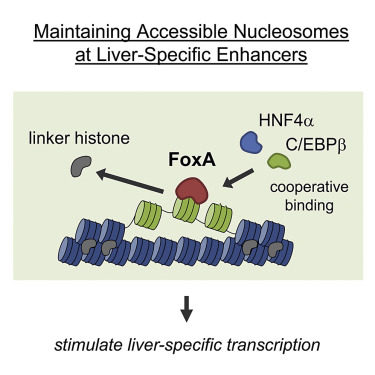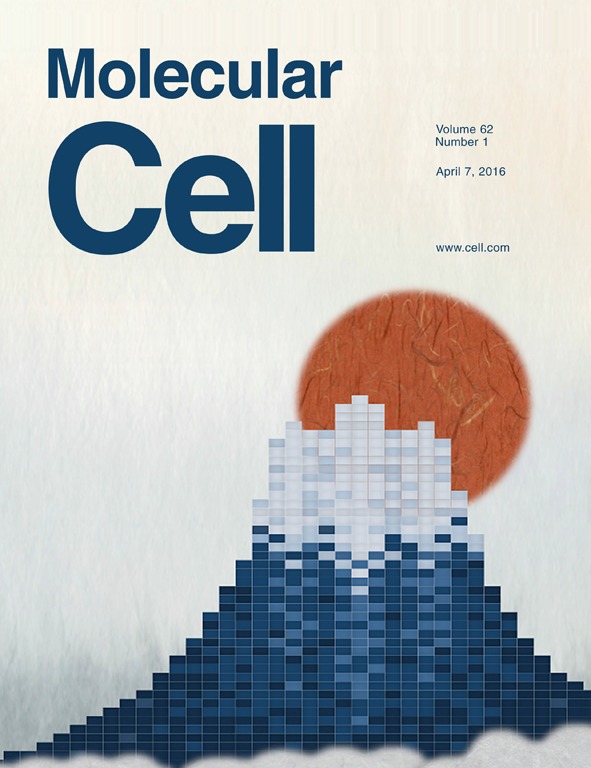Our collaborative study with Ken Zaret and colleagues at University of Pennsylvania has been published. The manuscript, entitled “The pioneer transcription factor FoxA maintains an accessible nucleosome configuration at enhancers for tissue-specific gene activation“, appears in Molecular Cell. While nucleosomes are often thought to block transcription f actor binding at tissue-specific enhancers, lead author Maki Iwafuchi-Doi in the Zaret group has found that accessible nucleosomes are retained within many liver enhancers. These nucleosomes are not detected using typical MNase-seq protocols, but became visible when contrasting the signals resulting from varying levels of MNase concentrations. Accessible nucleosomes in liver enhancers are directly bound by the Foxa2 pioneer transcription factor, which displaces the H1 linker protein to maintain accessibility.
actor binding at tissue-specific enhancers, lead author Maki Iwafuchi-Doi in the Zaret group has found that accessible nucleosomes are retained within many liver enhancers. These nucleosomes are not detected using typical MNase-seq protocols, but became visible when contrasting the signals resulting from varying levels of MNase concentrations. Accessible nucleosomes in liver enhancers are directly bound by the Foxa2 pioneer transcription factor, which displaces the H1 linker protein to maintain accessibility.
Akshay and Shaun worked with Frank Pugh (Penn State) to characterize high-resolution Foxa2 binding in liver tissue using ChIP-exo. Our results showed a tendency for Foxa2 to bind at the dyad of accessible nucleosomes.
Maki Iwafuchi-Doi also made the cover image for this issue of Molecular Cell.



